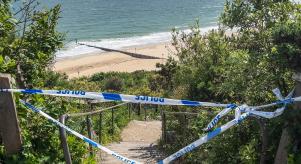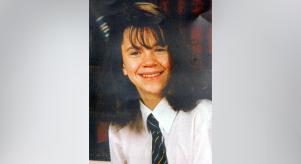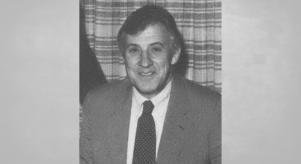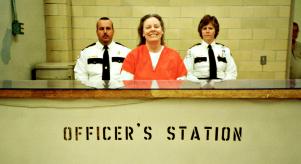
Michael Jackson: what we really know
16 years after Michael Jackson left Neverland, a new documentary is taking us back there.Leaving Neverland, which focuses on the allegations of abuse from two men, Wade Robson and James Safechuck, aired at Sundance in January and the controversy could be heard from there. It has been rolling off in waves ever since, arriving in the UK before the actual documentary has.
A four-hour film from Dan Reed, the festival tripled the amount of security present at the screening and hadcounsellors on hand in the lobby thanks to the film’s graphic content. In it, Robson and Safechuck (plus their families) detail accounts of their experiences with Jackson: sexual abuse over a number of years. They were seven and 10 at the time. The men claim that Jackson convinced their families to let them stay alone with him in hotel rooms and on his ranch, where the abuse then started. Safechuck says he and Jackson had amock wedding ceremony. He said he would be rewarded with jewellery. They claim Jackson told them they couldn’t trust their parents or women, that they would be put in prison if they told anyone what happened.
Further complicating things is the fact that both men had previously publicly denied the abuse ever happened. Both testified on Jackson’s behalf in 1993 when Jordan Chandler filed suits (something they claim Jackson coached them on) and Robson did so again at Jackson’s 2005 trial. He has spoken out indefence of Jackson since then, too. What’s more, Safechuck and Robson filed suits against Jackson in 2013 and 2014, but both were dismissed in 2017.
Countering this is Jackson’s family and his estate, who havedescribed the film as 'lurid' and a 'pathetic attempt to exploit and cash in on Michael Jackson.' They have said it amounts to a'public lynching'. The estate even wrote to Channel 4 saying that the documentary breaches programming guidelines. Jackson’s nephew Tajsaid it’s a 'one-sided hit job' and 'all about money and the desperate need to be relevant again.'
The film doesn’t shy away from this, though. Defending its choice to air the documentary,Channel 4 released a statementsaying: 'It is not unusual for victims of child sex abuse to only feel able to disclose what happened to them in later life.' It also said the documentary allows Jackson a reply through old footage. But that doesn’t get round the fact that Jackson isn’t able to address these allegations himself (which is all that these are), nor defend himself. He is dead and has been for 10 years.
The man did, however, have his day in court.
He made claims of fondling, oral sex and described Jackson’s genitals
Jackson had already been known for his friendships with children before the first claims of abuse were made. He bought Neverland Ranch in 1988 and filled it with a fairground and petting zoo. Children like Safechuck and Robson, then later Macaulay Culkin and Jordan Chandler were invited to stay there and often did, for days on end. Culkin has saidhe shared a bed with Jackson, but that nothing ever happened there.
The first claims of criminal behaviour came in the early 90s, after Safechuck and Robson had been ‘phased out’. In 1993, Evan Chandler became suspicious of his son Jordan’s relationship with Jackson, one that included sleepovers during which they shared a bed and saw the 13-year-old travel the world with him.
Chandler set up an appointment with a psychiatrist for his son, to whom Jordan reported that Jackson had been sexually abusing him. He made claims of fondling, oral sex and described Jackson’s genitals. The allegations were reported to the police and they started an investigation. Neverland Ranch was raided. Then, in September of that year, Evan Chandler filed a civil suit. Jackson refuted the claims and was never charged by the police, who eventually closed the investigation due to a lack of evidence. But the case never made it to trial as it was settled out of court in 1994 for $23 million. Both sides signed confidentiality agreements and Jordan Chandler has never spoken publicly about it. It left a mark (a question mark for many) on Jackson’s career and reputation.
Then, in 2003, the now infamous documentary from Martin Bashir, Living with Michael Jackson aired. In it,Jackson admitted to Bashir that he shared a bed with young boys and had shared his bedroom with the 12-year-old cancer survivor Gavin Arvizo. Jackson was 44 at the time. He described it as a 'beautiful thing' and said he was trying to 'heal' him. If one of Jackson’s reasons for doing the documentary was to help his reputation, it spectacularly backfired. On the back of it, another criminal investigation was launched. Arvizo anonymously accused Jackson of molestation and in November that year, Neverland was raided again. A few days later, Jackson was arrested and charged on seven counts of child molestation and two of administering an intoxicating agent for the purpose of committing a felony.
The case came to trial in 2004. Jackson was accused of molesting Arvizo, plying him with alcohol and masturbating in front of him. Members of Jackson’s stafftestified against him; his housekeeper’s son accused him of inappropriately touching him and paying him after every encounter. For his part, Jackson did nothing to help with his public image,dancing on a car roof and coming to court late, dressed in his pyjamas. But in 2005, the jury voted to acquit. They later said Arvizo hadn’t been believable and that therewasn’t enough evidence against Jackson. He was cleared of all charges.
Jackson might have left Neverland, but never the damage of the accusations. That mark has always hovered over his name (though for many, on both sides, it’s not a question). Now, we have these new claims andLeaving Neverland: a film that has already been described byearly reviewers as 'credible'. What does this mean for the rest of Jackson’s reputation? He may have had his day in court, but the jury’s still out.




